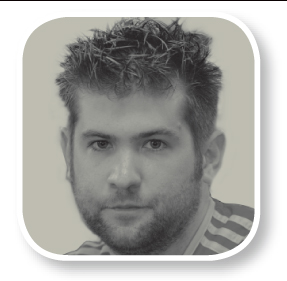






Evolutionby Gavin Griffin | Published: Apr 16, 2014 |
|
|

Gavin Griffin
The most respected people back in the day were ones like Doyle, Amarillo Slim, and T.J. Cloutier, who had a passing knowledge of math though they probably couldn’t explain their grasp of it to you, and a whole lot of ability in reading their opponents and taking advantage of it through aggression, wit, and charm. Now, the most respected players are the ones who can use their skills in math, statistics, and game theory to devise a strategy tailored towards their own game and that of their opponents to systematically dismantle the edges that they come up against.
I feel like I too have undergone an evolution as a poker player. If I hadn’t, I’d be left back in the dust like so many other players before me. Armed with a heavily highlighted copy of The Theory Of Poker by David Sklansky, I had a fair knowledge of pot odds and rudimentary game theory that I had sort of cobbled together in my head. I made do with this small bit of knowledge, some innate talent at reading people, and a lack of fear that is so often seen in the younger generations. I found a community, also started by David Sklansky, that shared some of the same knowledge and a desire to learn and grow as individual poker players but also as a group. Together we fleshed out what we thought was a revolutionary shift in how the game was played. We were right, but we were just the leading edge, cracking away at the dam while a tidal wave loomed behind us ready to burst through those cracks and overwhelm us. Many of us didn’t survive in the poker world and many didn’t want to survive. Those of us that are still playing happen to be amongst the most successful poker players in the world and those that came after us have changed the face of the poker world forever. The analytical approach to the game that we started was expanded upon and nearly perfected (in some cases completely perfected) by the sometimes younger and generally smarter ones that came after us. I found another group of these high-level thinkers and latched on to them as fellow poker players and friends. I feel as if I gave a fair amount to the group, almost as much as I gained though they may have some trouble quantifying the input that came from me, certainly more trouble than I would have quantifying the additions they made to my game.
Taking a more analytical approach to the game was difficult for me over the years for many reasons. First, I’m not as talented in math as the people around me. Second, I lacked the language of the analysis that was happening around me and I had to fly by the seat of my pants to make sense of the things I was hearing. I could infer the meanings but not pinpoint them. In trying to take a more math-based approach to poker, I lost something. I ignored the part of my game that got me my very successful started. In my attempts to have a balanced range in most situations I encountered while playing, I forgot to be balanced in my approach to the game itself. Why shouldn’t I use my talents for reading people in addition to the knowledge in math that I had gained throughout the years?
I recently read a book by Joshua Foer titled Moonwalking with Einstein. It’s a look at his year as a contender on the international memory championship circuit. In it he mentions a facility in Florida that studies how the brain works. They did a study in which they had some police officers watch video with a light gun, and the footage was of a person who looked innocent enough but was about to walk up to a group of people and start shooting. The officers with the most experience recognized the intent of the shooter long before the newer officers and most of them couldn’t quantify why they knew this person was a threat. Perhaps it was in the way they walked or the way their shirt hung, but they just knew their intent was bad. This is sort of how it is with a poker player who has played many hours at live tables. You can see how a person reacts to the cards on the table and “just know” how they feel about them. Perhaps this is what makes Phil Hellmuth so good. He plays in a way that the analytical players of today can’t quite get a hold of conceptually, but somehow it works.
This return to a more fundamental and base way of playing poker has solidified my ideas about how useful analytical and mathematical play is as a baseline for winning players. It has also reminded me that our talents and the hours that we’ve put in at the tables can be a valuable addition to that baseline strategy that may not be quantifiable, but will hopefully positively impact our bottom line. ♠
Gavin Griffin was the first poker player to capture a World Series of Poker, European Poker Tour and World Poker Tour title and has amassed nearly $5 million in lifetime tournament winnings. Griffin is sponsored by HeroPoker.com. You can follow him on Twitter @NHGG
Features
The Inside Straight
Strategies & Analysis